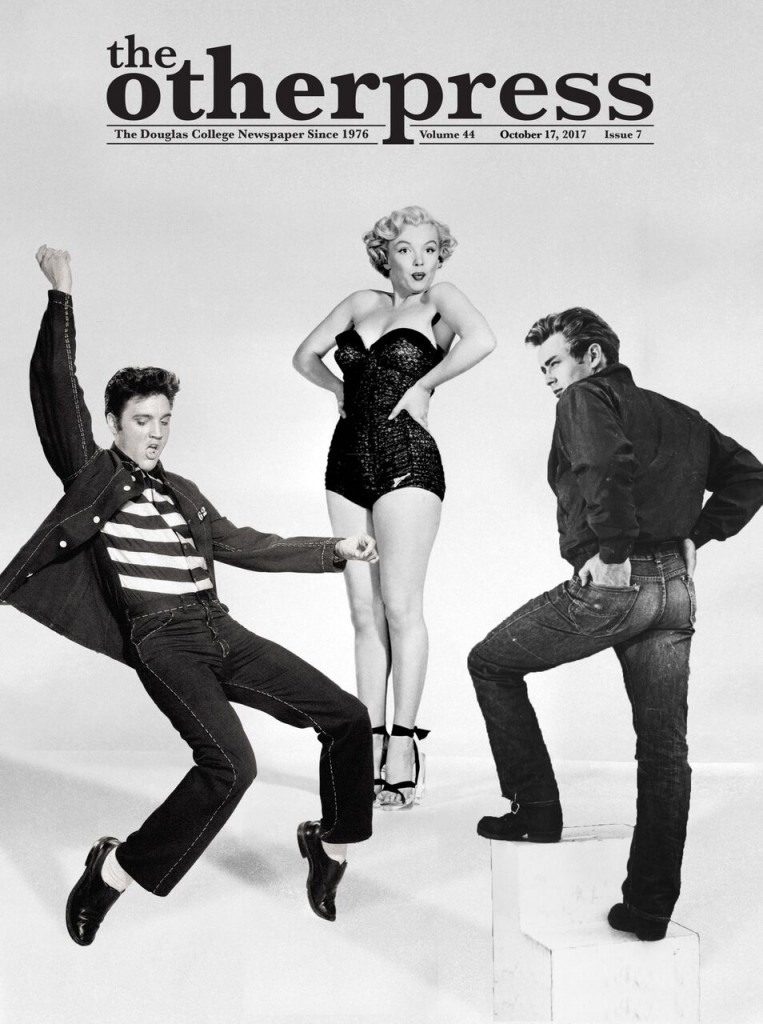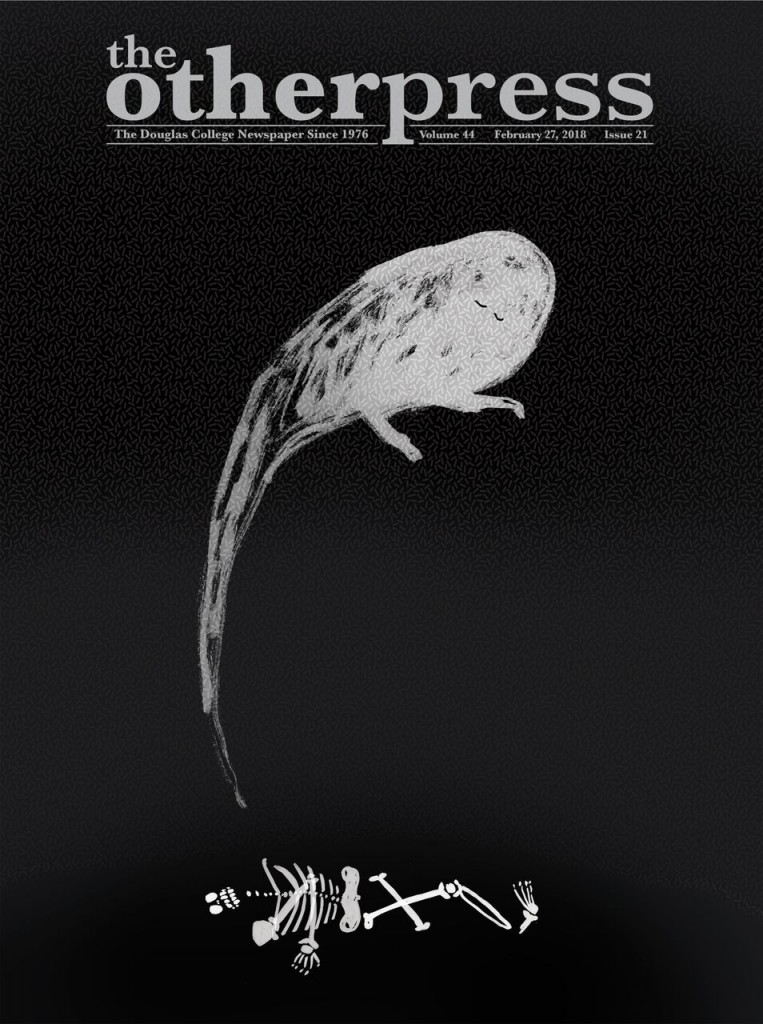The cultural fascination with celebrities who have passed on
By Brandon Yip, Contributor
Why are dead celebrities so popular? Well, there seems to be a correlation with a celebrity’s demise equaling unrelenting fan obsession, worship and buying anything that features their image: Cups, mugs, t-shirts, key chains, shot glasses and other tacky kitsch.
Celebrity worship can be traced back to the death of Rudolph Valentino, the silent screen idol of the early 20th century who died on August 23, 1926 at the age of 31. Mass hysteria followed with over 100,000 people gathering on the streets of Manhattan in New York during his funeral. On September 30, 1955, actor James Dean (who made only three films) was killed in a car crash when his silver Porsche Spyder collided with another vehicle in Cholame, California. Dean was only 24 years old and he became a symbol of teenage angst and rebellion when his most famous film, Rebel Without a Cause, was released a month after his death. Perhaps the late American artist and sculpture maker, Kenneth Kendall, said it best telling the DailyMail.com in an interview, “There’s one wonderful thing about dead [celebrities]. They can’t disappoint you, which is about all the live ones are capable of doing.”
This year marked two notable anniversaries involving two dead rock icons, Jim Morrison and Elvis Presley. July 29, 2017, marked the 50th anniversary of The Doors’ hit song “Light My Fire,” hitting number one on the billboard charts and staying there for three consecutive weeks. Charismatic lead singer and poet, Jim Morrison, was the “Lizard King” shaman for The Doors. The Doors had a string of hit albums until Morrison’s unpredictable stage antics due to alcoholism would eventually derail the band’s reputation as a dependable and reliable band for concert promoters to book. Morrison would later retreat to Paris, France in March 1971 but four months later, he would be found dead in a hotel bathtub on July 3, 1971.
Of course, the King of Rock ‘n’ Roll, Elvis Presley, is still shakin’ his hips in the afterlife, as August 16, 2017 marked the 40th anniversary of his death. Fans still make the pilgrimage to Graceland on the anniversary of Elvis’ death. But for the 40th anniversary, fans were “All Shook Up” when they were charged $28.75 to view Elvis’ grave. Notably, Elvis’ music sales still moved more than 1 million albums during 2016, the majority of them physical (not digital). The King may be dead, but his bank account certainly isn’t.
CMG Worldwide Founder & Chairman, Mark Roesler, whose company represents over 1,500 of the world’s most famous personalities, including James Dean, said the market and demand for dead celebrities won’t die down any time soon.
“Because of their success and the high level of respect associated with such personalities, the public continues to view them as role models and legends,” Roesler said in an interview with the Other Press. “Inevitably, the public may begin to focus less on certain personalities as time passes, which is why it’s so important for the agents and estates of deceased personalities today to have a robust social media and online presence, along with strong licensing and infringement enforcement programs. In the current age of technology, the public has more opportunities to easily access information about their favorite living and deceased celebrities, which certainly helps the fascination with deceased celebrities to continue.”
Roesler also stated the impact that social media has had on his deceased clientele. “Social media has made a huge impact on CMG personalities because it allows the fans to continue ‘interacting’ with these personalities long after they have passed away,” Roesler said. “It also provides us the opportunity to keep these personalities relevant and ensure that the fans still have new content to view even though the personality is no longer here to create it. Social media has given CMG the ability to highlight our clients and their achievements in new ways, and allows us to connect with many people in just a few clicks.” At the moment, Roesler said his top five most popular clients are Maya Angelou, Jackie Robinson, James Dean, Amelia Earhart, and Bettie Page.
Elaine “Lainey” Lui, co-host on CTV’s daily talk show, The Social, says dead celebrities will always have a place in fan’s hearts.
“Elvis Presley, James Dean, and Marilyn Monroe all died young,” Elaine said in an interview with the Other Press. “And they all died mysteriously, suddenly. Part of the fascination we have with them is that there’s always a question of ‘what if?’ It’s the lure of possibility. It’s the constant wondering about what else could have been accomplished had they survived. It’s the sense that, with these three in particular, the story was incomplete.”
In addition, Lui said that age (specifically, youth) plays a key factor in a dead celebrity’s legacy.
“At the same time, in dying so young, it meant that they were never old,” Lui says. “Sure, Elvis had deteriorated physically, but he wasn’t grey, he wasn’t wrinkled. His condition at the time of his death was attributed to other factors—not age. People still remembered what he looked like in his prime. Youth is a powerful lure. James Dean and Marilyn Monroe died with their beauty intact, which means they will only be remembered forever young, forever beautiful. It means that, especially in the case of Dean and Monroe, the visuals that remain are ones that depict them in perpetual, ageless beauty.”
But has the obsession with dead celebrities gone overboard? Alex Proud, writer for The Telegraph, seems to think so, as he has a more cynical view about dead celebrity worship, stating, “And what about people who aren’t famous? Were I minded to cry over the deaths of people I’ve never met, the blameless children of Syria might be more deserving of my tears than an ageing pop star who hadn’t produced anything good in decades.”
However, Pelin Kesebir, then a researcher at the University of Illinois at Urbana-Champaign, who back in 2008 conducted a study about dead celebrity fascination, says that dead celebrity worship is not such a bad thing in the bigger picture. “We all need these buffers,” Kesebir said in a 2008 interview with Psychology Today.
“Famous people can serve as inspirational figures. They can provide the kind of existential stamina. They can show that you yourself can become immortal. So they’re in a way what’s best about a culture. They can serve as compasses. I don’t think that’s unhealthy.”
Nonetheless, dead celebrity worship does not appear to be disappearing anytime soon. And as for Lui, when asked which dead celebrity she would have loved to have met and interviewed, she quipped, “Elvis. But would he really be dead?”




